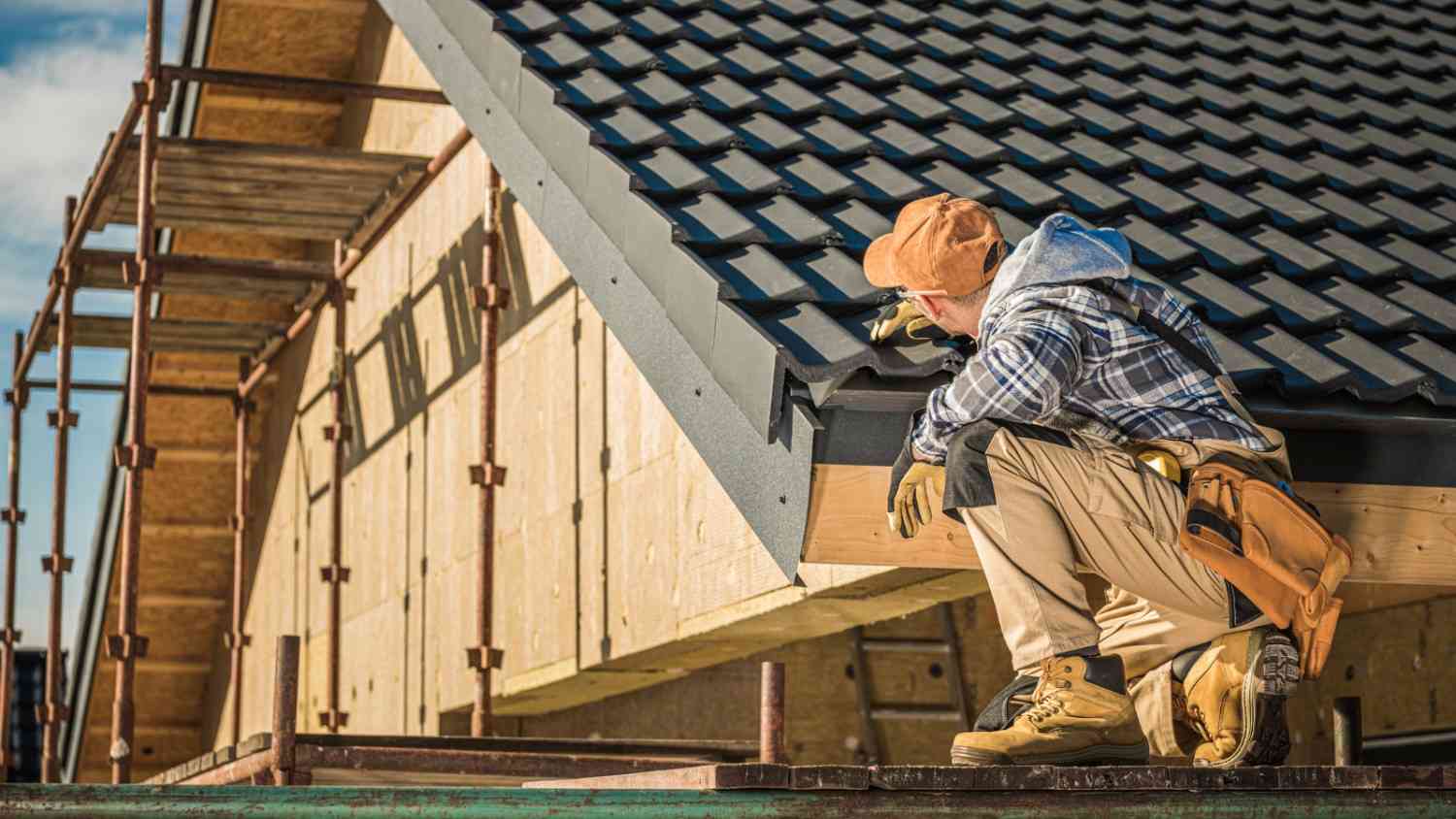A post-repair roof certification verifies your roof repairs meet industry standards and local Orange County building codes. Professional roof repair services often include certification as part of their comprehensive repair process. While not universally mandated in California, these certifications are often requested by buyers during property sales and required by insurance companies. You’ll need documentation from a licensed inspector detailing the repairs and confirming code compliance. Having this certification can increase your home’s value, streamline real estate transactions, and provide essential protection for your roofing investment.
What Exactly Is a Post-Repair Roof Certification?
After your roof has undergone repairs, a post-repair roof certification serves as an official document verifying that the work was completed properly. This certification comes from a licensed roofing inspector who thoroughly examines the repairs to guarantee they meet industry standards and local building codes.
The certification process typically involves a thorough inspection of the repair work, checking for proper installation, material quality, and general structural integrity. You’ll receive documentation outlining the inspector’s findings and an official statement confirming the repairs are satisfactory.
One of the key post-repair benefits includes peace of mind knowing your investment is protected. Furthermore, this certification often helps with insurance requirements, can increase your home’s value, and may be required when selling your property.
Legal Requirements for Roof Certifications in Orange County
While post-repair certifications offer clear benefits, homeowners in Orange County must understand the specific legal mandates governing these documents. California law doesn’t universally require roof certifications, but Orange County has implemented stricter standards for property transactions and insurance purposes.
When selling your home, you’ll need to disclose the roof’s condition, and many buyers will request a certification dated within the last six months. Local building codes require that any roof repairs meet current certification standards, particularly for fire resistance in high-risk zones.
Your insurance provider may also impose legal obligations regarding roof certification. Many Orange County insurers now require documentation of roof integrity before issuing or renewing policies, especially following repairs from storm damage or after the roof reaches 15 years of existence. Understanding insurance claims for roof damage helps homeowners navigate these requirements effectively.
The Difference Between Warranties and Certifications
Homeowners often confuse roof warranties and certifications, though they serve distinctly different purposes in protecting your investment. A warranty is a promise from the manufacturer or contractor to repair or replace your roof if it fails within a specified period. Warranty types include manufacturer warranties covering materials and workmanship warranties from your contractor.
Certifications, however, are professional assessments confirming your roof’s current condition and expected lifespan. Certification importance lies in their third-party verification, they’re typically issued by licensed inspectors with no stake in selling you products or services. While warranties look forward and promise future protection, certifications document present condition and compliance with local building codes. You’ll need both: warranties for long-term security and certifications for immediate verification of your roof’s integrity.
Qualified Inspectors: Who Can Issue Valid Certifications
Not all roofing professionals can issue valid roof certifications, despite what some service providers might claim. In Orange County, certifications should come from licensed roofing contractors or certified home inspectors who specialize in roof assessments and understand local building codes.
Look for inspectors with specific credentials that meet certification standards, including state licensing, industry certification from organizations like NRCIA (National Roof Certification and Inspection Association), and several years of documented experience with your roof type.
Insurance companies and mortgage lenders typically recognize certifications only from qualified professionals who maintain proper inspector qualifications. Before hiring someone, verify their credentials, ask about their inspection methodology, and confirm they carry errors and omissions insurance, essential protection if certification issues arise later. Understanding the difference between professional vs DIY roof inspections helps homeowners make informed decisions about certification providers.
How Post-Repair Certification Impacts Insurance Coverage
Once your roof repairs are complete, proper certification can dramatically influence your insurance situation. Many insurance companies require documentation proving repairs were properly completed before reinstating full coverage or processing claims related to previous damage.
Without certification, you’ll likely face coverage limitations that leave you financially vulnerable. Some insurers may increase your premiums or deny claims entirely if they uncover uncertified roof work during their assessment.
The certification serves as official verification that repairs meet building codes and industry standards, reducing your liability. When you provide this documentation to your insurer, you’re establishing a new baseline condition for your roof that helps protect against future insurance implications. Most Orange County insurers view certified repairs as evidence of your commitment to property maintenance.
Documentation to Request From Your Roofing Contractor
After completing roof repairs, you’ll need to secure proper documentation to validate the work and protect your investment. Request a detailed repair report outlining all work performed, warranty documentation that clearly states coverage terms and duration, and a certification compliance form that confirms the repairs meet local building codes and industry standards. These documents aren’t just paperwork, they’re vital proof for insurance claims and future property transactions.
Detailed Repair Report
When finalizing your roof repair, you’ll need a detailed and extensive repair report that documents all work performed. This report serves as a thorough record of your roof’s repair history and should comply with Orange County inspection standards.
Your report should include specific details about materials used, areas addressed, and techniques employed during repairs. Look for clear documentation of problem areas, complete with before and after photos that visually confirm the completed work. Confirm the contractor lists all replacements, from shingles to flashing, with corresponding quantities and specifications.
A quality report will also note any underlying issues identified during repairs and how they were addressed. This documentation becomes invaluable for insurance claims, future maintenance planning, and establishing compliance with local building codes.
Warranty Documentation
Thorough warranty documentation forms the backbone of your post-repair protection plan. After your Orange County roofing project is complete, you’ll need to collect specific paperwork that outlines your rights and the contractor’s obligations. Different warranty types offer varying levels of protection, so understanding what you’ve received is vital.
Request these important documents from your contractor:
- Manufacturer’s material warranty – Covers defects in roofing materials with specific coverage limits (typically 20-30 years)
- Workmanship warranty – Protects against installation errors, usually with shorter coverage limits than material warranties
- Transferable warranty documentation – Paperwork that allows warranty benefits to transfer to new homeowners if you sell your property
Keep these documents in a safe, accessible location and review the terms carefully to understand what’s covered and for how long.
Certification Compliance Form
Beyond warranty documentation, the Certification Compliance Form represents a crucial official record validating your roof repair meets all required standards. This document confirms your contractor adhered to Orange County’s building codes and industry specifications throughout the certification process.
When requesting this form, ascertain it includes:
- Detailed inspection results
- Specific compliance standards met
- Contractor’s license information
- Date of certification
- Municipal approval signatures (if applicable)
You’ll need this documentation when selling your home, filing insurance claims, or applying for refinancing. Don’t hesitate to ask questions if any section seems unclear, reputable contractors expect this.
Store your Certification Compliance Form with other significant home documents. Remember, this isn’t just paperwork; it’s proof your investment is protected and compliant with all local regulations.
The Role of Certifications in Real Estate Transactions
During the complex process of buying or selling a home, roof certifications serve as valuable documents that can greatly impact negotiations and closing timelines. When you’re maneuvering the Orange County real estate market, understanding the certification importance can’t be overstated. A valid roof certification provides assurance to buyers and can improve your property’s real estate value by confirming the roof’s condition and remaining lifespan.
- Smoother Transactions – Certifications often prevent last-minute negotiation issues and can accelerate the closing process
- Insurance Advantages – Many insurers require recent roof certifications before issuing homeowner’s policies
- Leverage in Pricing – With a certification in hand, you’ll have documented evidence to justify your asking price when selling
Understanding budget-friendly advice from Orange County roof repair experts helps homeowners balance certification costs with long-term value protection.
For professional roof repair and certification services that meet all Orange County requirements, consider working with Truecraft Construction, a trusted local contractor experienced in both quality repairs and proper documentation procedures.
Residents in specific areas can benefit from localized expertise, such as Garden Grove roof repair specialists who understand regional building codes and certification requirements that vary by municipality.
Frequently Asked Questions
How Long Does a Typical Roof Certification Process Take?
You’ll typically complete your roof certification process within 1-3 days. The roof inspection takes a few hours, while paperwork processing requires extra time. Don’t underestimate certification importance for your home’s protection and value.
What Is the Average Cost for a Post-Repair Roof Certification?
You’ll typically pay $300-$500 for a post-repair roof certification. The average cost varies based on certification factors like roof size, complexity, and inspection depth. Some inspectors include minor repairs in their fee.
Can I Get Certification for Partial Roof Repairs?
Yes, you can get certification for partial roof repairs. The certification process typically covers the specific areas where roof repair was completed, ensuring those sections meet quality and building code standards.
How Often Should I Renew My Roof Certification?
You should renew your roof certification every 2-5 years, depending on your roof’s lifespan and local requirements. Most professionals recommend annual inspections regardless of certification status to catch potential issues early.
Are There Seasonal Considerations for Scheduling Roof Certifications?
Yes, schedule winter inspections before rainy season to identify potential leaks. Summer’s perfect for maintenance as dry conditions allow for thorough assessment and repairs. You’ll benefit from scheduling certifications during these best seasonal windows.


